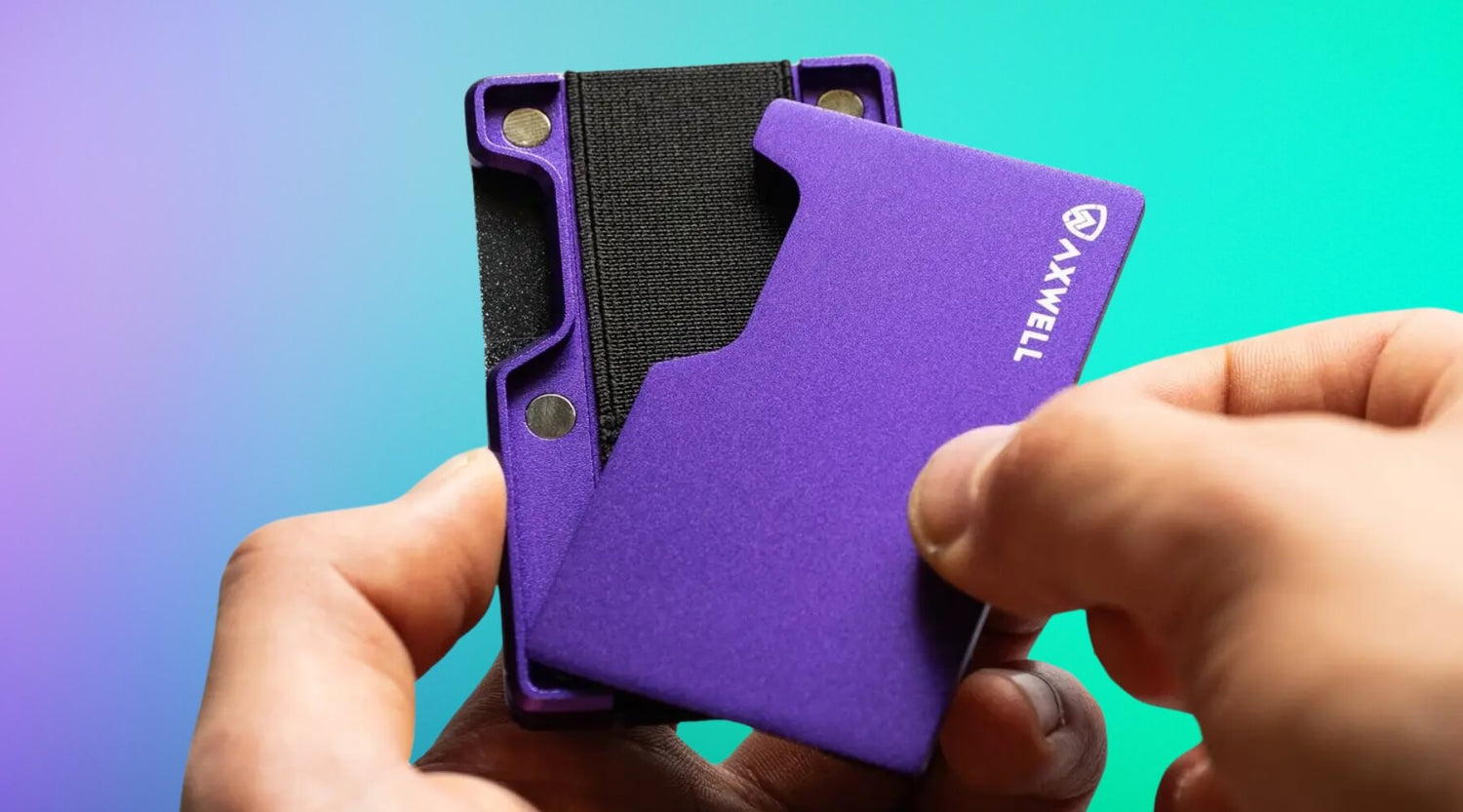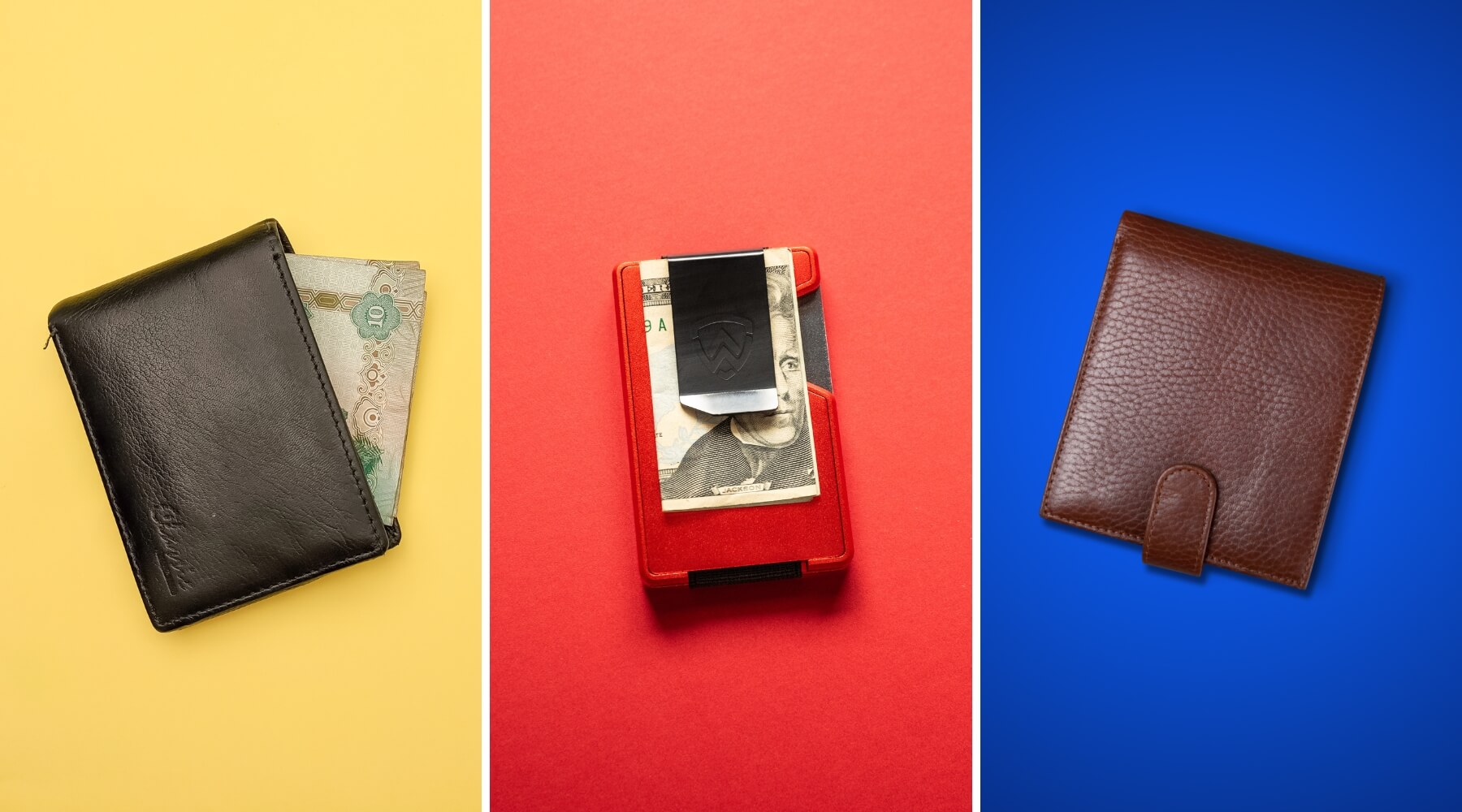The Concern About Magnetic Wallets and Credit Cards
Magnetic wallets have gained widespread popularity for their sleek designs and secure closures. Despite their convenience, many consumers remain concerned about whether these wallets can damage credit cards. Since credit cards rely on magnetic stripes to store sensitive financial data, it’s understandable that the proximity of magnets raises questions about potential harm.
In this article, we’ll break down how credit cards store data, explain how magnets interact with different card technologies, and determine whether magnetic wallets are genuinely risky. We’ll also share practical tips to keep your credit cards safe and debunk common myths surrounding magnetic wallet damage based on current research and industry insights.
How Credit Cards Store Data
Magnetic Stripes and Their Function
The magnetic stripe on a credit card contains encoded data essential for processing transactions. This stripe consists of magnetic particles arranged in a specific pattern using a process called magnetic encoding.
When a card is swiped through a reader, the machine decodes the data from the stripe to process the payment. The integrity of this stripe is critical—if its magnetic pattern is disrupted, the card becomes unreadable.
EMV Chips and Contactless Cards
Modern credit cards often feature EMV chips and contactless technology, making them more secure than magnetic stripe cards. EMV chips store encrypted data that cannot be altered by magnetic fields. Similarly, contactless cards use near-field communication (NFC) technology, which is not affected by magnets.
Data Storage Sensitivity
While EMV and NFC cards are resistant to magnetic damage, magnetic stripe cards remain vulnerable. A strong magnetic field can disrupt the encoded data, rendering the card useless until replaced by the issuing bank.
Magnetic Wallets Explained
What Are Magnetic Wallets?
Magnetic wallets feature built-in magnets to securely close compartments or hold money clips. They are popular for their minimalist design and easy access to cash and cards. These wallets are typically made from leather, aluminum, or carbon fiber with integrated magnets.
Popular Magnetic Wallet Types
- Magnetic Money Clip Wallets: Designed to hold cash securely without adding bulk.
- MagSafe Wallets: Attach to smartphones using built-in magnets.
- Magnetic Closure Wallets: Use hidden magnets to keep wallet compartments closed.
Why Magnets Are Used in Wallets
Magnets in wallets eliminate the need for bulky closures, making the wallet sleek and easy to carry. Their secure design appeals to minimalists and tech-savvy users looking for modern, convenient storage solutions. Popular brands like Axwell and Apple’s MagSafe wallets feature magnetic closures designed for safety.
Real-World Testing and Evidence
Research and product testing show that typical magnetic wallets on the market are unlikely to damage credit cards. Apple has even confirmed that its MagSafe wallets are safe for use with credit cards containing EMV chips.
Situations Where Caution Is Advised
- Hotel Key Cards: These are highly susceptible to magnet damage.
- Wallet Storage Near Electronics: Avoid placing wallets near magnetic phone mounts or powerful gadgets.
- Outdated Cards: If you still use magnetic-stripe-only cards, consider upgrading to EMV cards for added security.
Myths vs. Facts
Myths
Myth 1: Any Magnet Will Instantly Ruin a Credit Card
A widespread belief is that any magnet, no matter how small, will immediately demagnetize a credit card. This misconception likely stems from outdated technology in older magnetic stripe cards. While it’s true that powerful magnets can disrupt the magnetic encoding on some cards, everyday wallet magnets, such as those used in magnetic closures or money clips, are far too weak to cause instant damage.
Myth 2: All Cards Are Equally Vulnerable to Magnet Damage
Another common myth is that all types of payment cards are equally at risk when exposed to magnets. In reality, not all cards use the same technology. Magnetic stripe cards are the only ones that can be affected by magnetic fields. Modern cards with EMV chips or contactless technology (NFC) are entirely resistant to magnets because they store data differently, using secure digital encryption.
Facts
Fact 1: Wallet Magnets Are Typically Too Weak to Cause Damage
Most magnetic wallets on the market use low-strength magnets designed for secure closures, not powerful enough to disrupt the magnetic stripes on credit cards. These magnets ensure the wallet stays closed while keeping your cards safe from harm.
Fact 2: EMV Chips and Contactless Cards Are Not Affected by Magnets
Cards equipped with EMV chips and NFC contactless features are immune to magnetic interference. These technologies rely on encrypted digital communication rather than magnetic data storage, making them safe even when stored in wallets with built-in magnets.
Fact 3: Only Outdated Magnetic Stripe Cards Are Vulnerable
The only cards at risk from magnetic fields are older magnetic stripe cards. Even in these cases, the magnet must be powerful and in constant contact with the card’s stripe to cause damage. Modern banks and card issuers now prioritize EMV chips, significantly reducing the risk of card demagnetization from wallet magnets.
FAQs
Can a magnetic wallet ruin my credit card?
Magnetic wallets are unlikely to ruin modern credit cards with EMV chips or contactless technology. However, if you still use older cards with magnetic stripes, there’s a minimal risk of demagnetization if exposed to strong magnetic fields for long periods.
What type of credit cards are most affected by magnets?
Magnetic stripe cards are the most susceptible to magnetic damage. Cards with EMV chips or contactless NFC technology are immune to magnets because they store data digitally rather than magnetically.
How strong does a magnet need to be to damage a credit card?
It takes a very strong magnet, like those found in industrial equipment or high-powered electronic devices, to damage a credit card. Everyday wallet magnets used in closures and money clips are too weak to cause harm.
Are MagSafe wallets safe for credit cards?
Yes, Apple has confirmed that MagSafe wallets are safe for credit cards with EMV chips. However, caution is still recommended when storing old magnetic stripe cards in MagSafe wallets.
What should I avoid storing near a magnetic wallet?
Avoid placing magnetic wallets near hotel key cards, outdated magnetic stripe cards, or powerful electronic devices with strong magnets, such as speakers or phone mounts, to reduce the risk of demagnetization.
Can hotel key cards be damaged by magnetic wallets?
Yes, hotel key cards are particularly sensitive to magnets and can be demagnetized more easily than credit cards. It’s best to keep hotel key cards separate from magnetic wallets.
How can I protect my credit cards from magnets?
Use an RFID-blocking wallet, such as Axwell Wallets, which provides both physical and electronic protection. Store magnetic stripe cards separately and avoid leaving wallets near devices with strong magnets.
Why do some credit cards stop working after being in a wallet?
If a credit card stops working after being stored in a wallet, it could be due to wear and tear, magnetic stripe damage, or exposure to strong magnets. Contact your bank or card issuer for a replacement if needed.
Is it worth upgrading to an RFID-blocking wallet?
Yes, an RFID-blocking wallet offers added protection against digital theft while also providing a durable barrier that helps shield cards from low-intensity magnets. This combination ensures both security and functionality.
What should I do if my card gets demagnetized?
If your card becomes unreadable, contact your bank or credit card issuer immediately to request a replacement. While waiting, consider upgrading your wallet to one designed for credit card safety.
Final Thoughts
While magnetic stripe cards remain vulnerable, EMV chip and contactless cards are generally safe from magnetic interference. Wallet brands like Axwell design their products to be credit card-compatible, offering peace of mind to modern consumers.
By choosing high-quality wallets and following safe storage practices, you can keep your credit cards secure while enjoying the convenience of magnetic wallet designs. Upgrade your wallet today and experience the perfect blend of functionality, security, and modern design.
👉 Join the Axwell Army Newsletter for special discounts on your first wallet purchase and take the first step toward your last wallet ever.
Learn More with These Articles
If you want to dive deeper into magnetic wallets, check out these related articles below:
- Best Smart Wallet
- Best MagSafe Wallet
- Are MagSafe Wallets Safe for Credit Cards?
- What is a Smart Wallet?
- Do MagSafe Wallets Fall Off?
- What’s in Your Wallet? A Complete Guide
- What Color Wallet Attracts Money?
- What is a Travel Wallet?
- What is a Minimalist Wallet?
- What should I keep in my wallet?
- What is a money clip wallet?
- Types of Wallets: Guide to Every Wallet
- 8 Best Zipper Wallets
- Best Wallet Tracker GPS Device the Size of a Credit Card
- What Size is a Wallet Photo?
- What is the Size of Wallet Size Picture?









